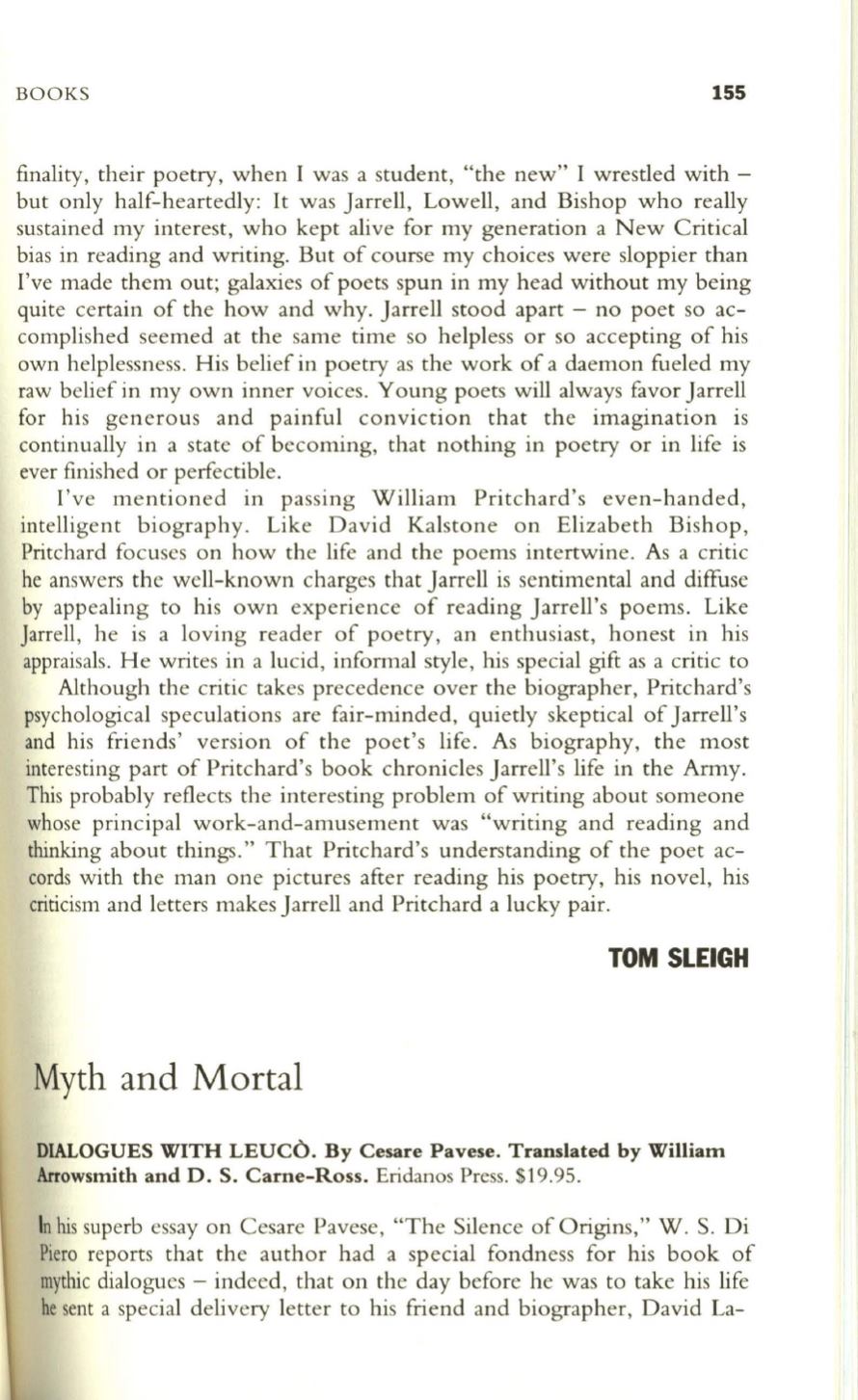
BOOKS
155
finality, their poetry, when I was a student, "the new" I wrestled with -
but only half-heartedly: It was Jarrell, Lowell, and Bishop who really
sustained my interest, who kept alive for my generation a New Critical
bias in reading and writing. But of course my choices were sloppier than
I've made them out; galaxies of poets spun in my head without my being
quite certain of the how and why. Jarrell stood apart - no poet so ac–
complished seemed at the same time so helpless or so accep ting of his
own helplessness. His belief in poetry as the work of a daemon fueled my
raw belief in my own inner voices. Young poets will always favor Jarrell
for his generous and painful convic tion that the imagination is
continually in a state of becoming, that nothing in poetry or in life is
ever finished or perfectible.
I've mentioned in passing William Pritchard's even-handed,
intelligent biography. Like David Kalstone on Elizabeth Bishop,
Pritchard focuses on how the life and the poems intertwine . As a critic
he answers the well-known charges that Jarrell is sentimental and diffuse
by appealing to his own experience of reading Jarrell's poems . Like
Jarrell, he is a loving reader of poetry, an enthusiast, honest in his
appraisals. He writes in a lucid, informal style, his special gift as a critic to
Although the critic takes precedence over the biographer, Pritchard's
psychological speculations are fair-minded, quietly skeptical of Jarrell's
and his friends' version of the poet's life . As biography, the most
interesting part of Pritchard's book chronicles Jarrell's life in the Army.
This probably reflects the interesting problem of writing about someone
whose principal work-and-amusement was "writing and reading and
thinking about things." That Pritchard's understanding of the poet ac–
cords with the man one pictures after reading his poetry, his novel, his
criticism and letters makes Jarrell and Pritchard a lucky pair.
TOM SLEIGH
Myth
and Mortal
DIALOGUES WITH LEUCO. By Cesare Pavese. Translated by William
Arrowsmith
and
D.
S. Carne-Ross.
Eridanos Press.
$19.95.
In
his superb essay on Cesare Pavese, "The Silence of Origins," W . S. Di
Piero reports that the author had a special fondness for his book of
mythic dialogues - indeed, that on the day before he was to take his life
he sent a special delivery letter to his friend and biographer, David La-


